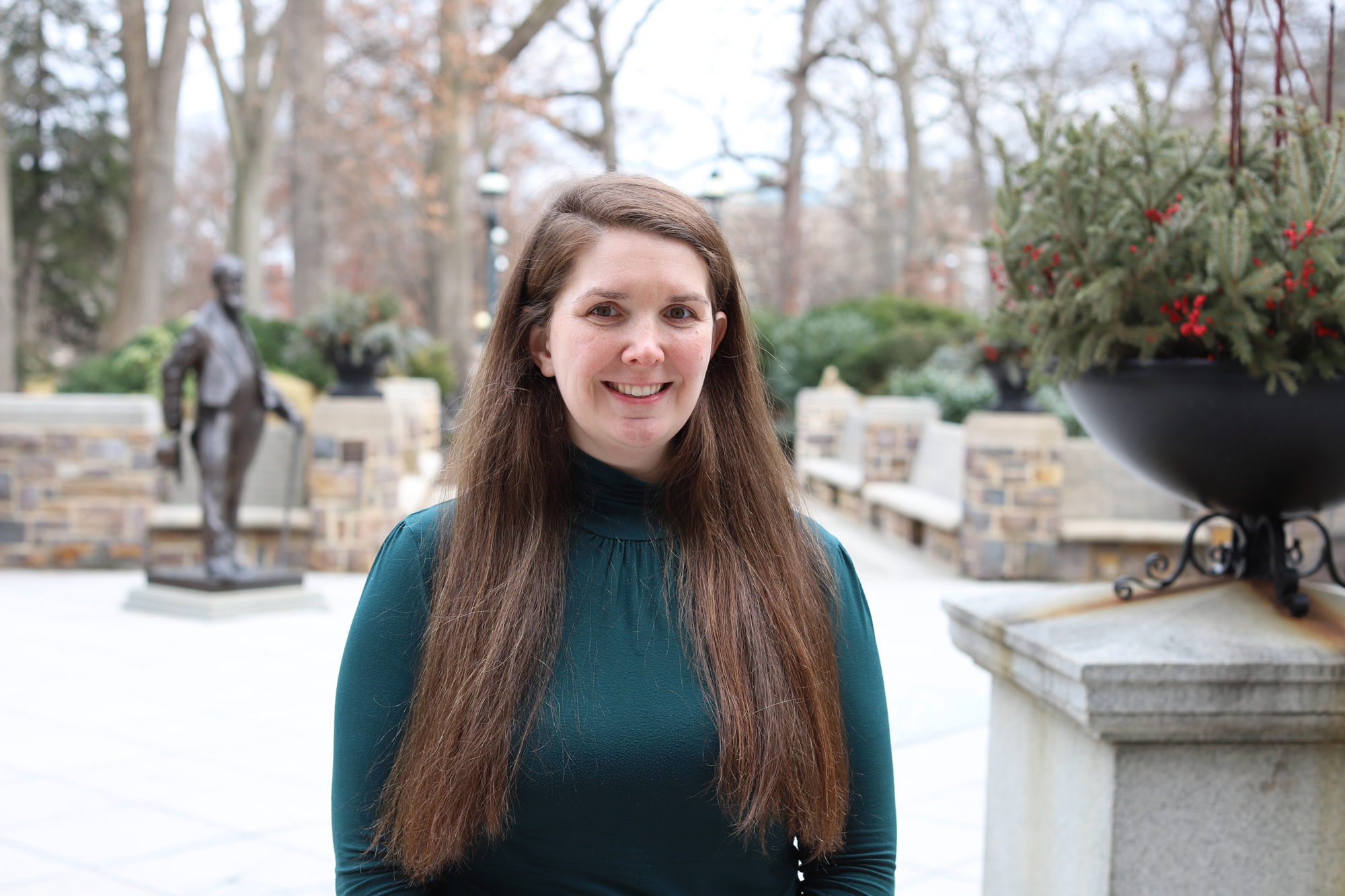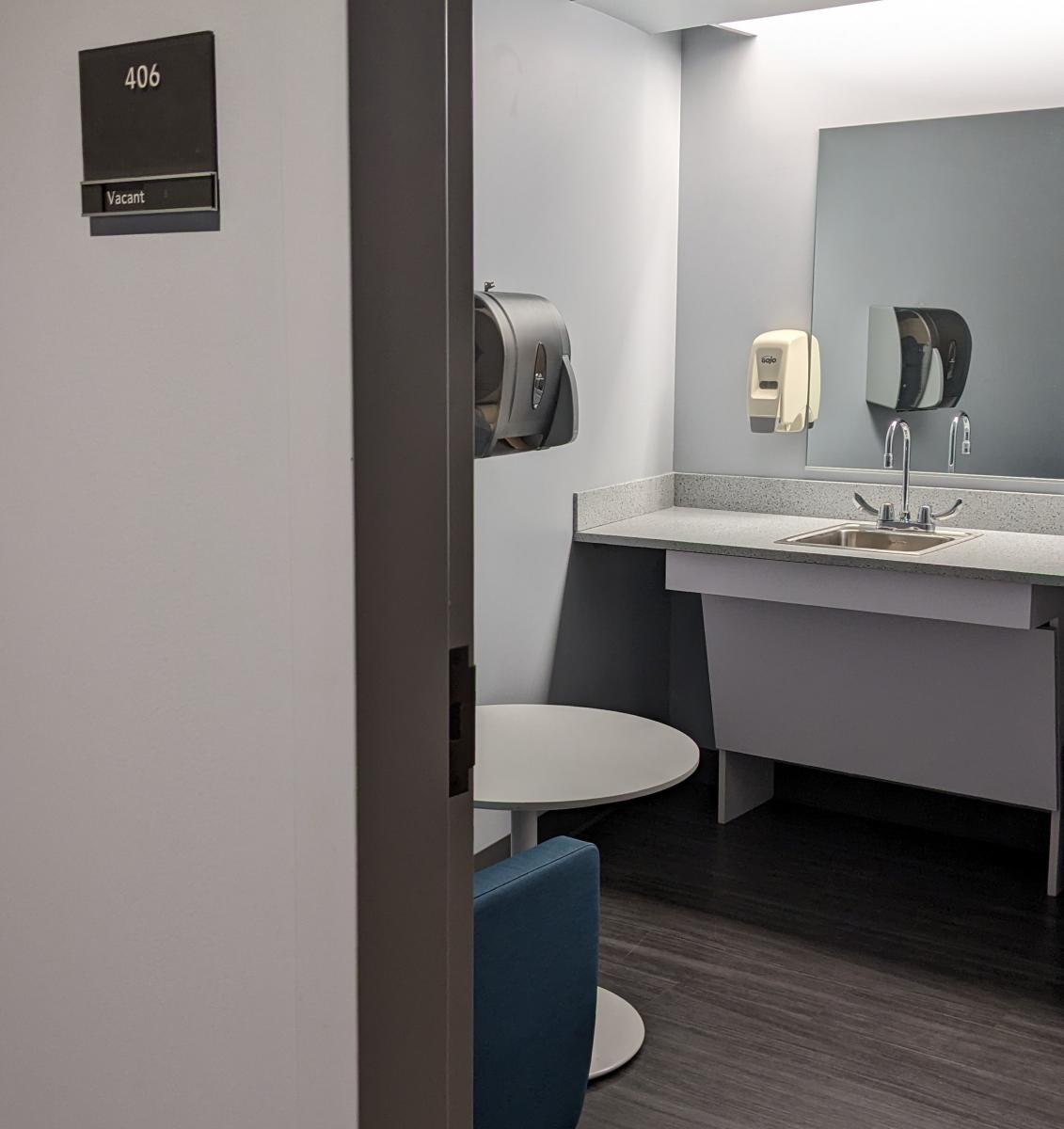When an employee re-enters work after parental leave there are strong emotions, child care logistics, and so much more that add complexity to their routine. Wondering how to continue to provide breastmilk for their baby shouldn’t add to the stress of a new parent’s day.
The new Lactation Break Support for Faculty and Staff Policy at Lehigh formalizes many of the university’s existing practices around lactation spaces and break time and provides new parents and their supervisors with the guidance and assurances they need for a confident return to work experience. The policy also aligns with federal and state requirements regarding access to lactation facilities.
Rita Jones, Director of the Center for Gender Equity, initiated a grassroots effort to create a university policy.
“Part of what started the movement to create this policy was working with different folks across campus and hearing their requests for lactation or *chestfeeding spaces,” Rita explained. “Nationally, centers like ours are often part of the process. With Lehigh not having a policy, I was concerned about situations where there might be employees who need time and their supervisor is unsure of what to do.”
Rita created a **working group that developed a vision and conducted research. They drafted a sample policy with the aim of supporting inclusive family-friendly practices and reducing barriers for parents wishing to continue breast/chestfeeding after returning to work from parental leave. The working group then reached out to the Offices of General Counsel and Human Resources who also contributed many hours to the collaborative process to achieve the goal of an official policy.
There were three specific issues that required structure and guidelines.
“So, first, there is the issue of break time. Lactating people need to pump. So how does break time work?” Rita said. “Next, we as an institution have to ensure access to clean and clearly marked private spaces for people to use for pumping. And we affirm that people may also use other spaces to pump if they wish as long as it is not disrupting the workspace.”
Providing Break Time
While additional paid break time is not provided for pumping, the policy states that employees may use their paid break time for this purpose. For example, financial analyst Kristen Winter says she takes a half-hour of her daily break time and divides it into two pumping breaks.
“I believe that ‘Fed is best’ but for me, it is important to be able to continue the journey of chestfeeding my child by using a pump while I’m at work,” Kristen shared. “So if that takes two fifteen minute breaks a day that is what I'm going to do. I aim to take a break about every three and a half to four hours.”
As with most things, communication between supervisor and employee is key to a successful experience for lactating parents who are returning to work. The Center for Gender Equity has developed a toolkit to help managers and employees have these important conversations so they can create mutual understanding and expectations.
“The toolkit provides scenarios and suggestions to make the situation more comfortable for everyone involved,” Rita explained. It also includes a guide to locations of currently available lactation spaces across campus.

Lactation Spaces On Campus

The new policy affirms and formalizes Lehigh’s continuing commitment to providing appropriate lactation rooms on campus. Whereas ten years ago a space might have been created next to a bathroom, the university has moved away from that practice to create stand-alone rooms.
“Lehigh Facilities has been really great to work with over the years as people have come to me asking for a lactation space near a specific work area,” Rita noted. “This process has always been grassroots, and the Facilities team continues to find spaces to carve out. They’ve really just been amazing.”
When Kristen’s position was moved from the Third and New building to Alumni Memorial, in addition to adjusting to her new location, she also needed a private space for pumping.
“When I arrived at Alumni, I saw that there wasn’t really a sanitary private space for pumping. It was basically a storage facility,” Kristen recalled. “So I messaged Rita and asked if we could meet up to talk to see what could be done.”
Within a week, Rita came down and they discussed what was needed to create a space that met the needs of Kristen and other future users. “Now it’s no longer a storage facility,” Kristen said. “It’s a true lactation room for chestfeeding people.”
Kristen is especially happy that the space will be there for others when she no longer needs it. “An employee of [custodial service] ABM asked if they could have access to it so now they are able to use the lactation room when they are working on site here,” she said.
Rita confirms that Lehigh’s lactation spaces are also open for visitors, contracted service employees and others. “Our goal is to make sure that everyone can use the rooms if they are on campus. So whether it's a speaker, a job candidate, or someone from the community who's attending an event in the HST Community Room, all who have the need are welcome.”
Inclusive Solutions for Individual Situations
Providing guidelines for breaks and lactation spaces addresses some of the more universal needs for lactating parents. But each parent’s experience is by nature unique.
“For me it is a personal preference to continue chestfeeding for as long as possible, but for others it might not be the right choice,” Kristen said. “And for some, they may choose to continue for a few months or longer.”
Rita notes that choosing to use a lactation space is also a personal decision. And some may prefer to use their own office if they have a door. Each employee’s needs will require individual solutions.
Kristen says the mental space pumping at work requires is almost as significant as the physical space. “There’s a mental list you have to keep. Making sure you keep your pump parts sanitized. Do you have your necessary storage bags or bottles? It’s an ever evolving mental list.”
Even with the extra mental work and the breaks she needs to take, Kristen is happy to have had the option and the ability to chestfeed both of her children. She credits the support of her partner as well as her employer.
“It's such a short amount of time in the perspective of your children’s lives,” she said. “It’s really the blink of an eye.”
*The words we use can create greater inclusion and comfort with an issue that some may find sensitive or awkward. In this article, we have used the words lactation, chestfeeding and breastfeeding interchangeably.
“Chestfeeding is a relatively more recent term that health care providers and others are using to ensure that all parents and caregivers feel part of the space of nourishing their children and being with their children. And there are some folks who don't want to refer to their chests as breasts,” Rita explained. “Whether the person wants to use feeding, breastfeeding, lactation, or nursing, we have all of these words available to us and then people can decide where they want to be.”
Rita thinks using some of these less familiar terms allows people to know everyone is included in this conversation and can also be an educational opportunity. She also stresses that people don't have to keep using the same term every time they speak about this subject. They might move and shift around their language, depending upon what feels comfortable in the moment.
**Special thanks to those Lehigh employees who served on the working group that developed the new policy and also provide ongoing technical support:
Working Group
Naomi Coll
Brooke DeSipio
Kathleen Hutnik
Rita Jones
Esther Lindstrom
Joan Ramage
Ongoing Technical Support
Tess Gillespie
Azalea Chacon
